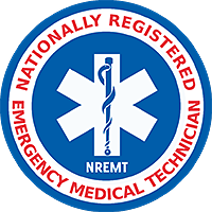Emergency Medical Services Two
Under Development
Emergency Medical Services 2 (EMS2)
The EMS2 course is the advance course for an EMS pathway. EMS 2 is also used as an advanced course in many Public Safety Pathways.
The EMSS2 course is an extension of the basic EMS training designed for high school students as part of the Career and Technical Education (CTE) program. This advanced course builds upon the foundational skills acquired in EMS Basic Training, providing students with in-depth knowledge and advanced techniques required for higher-level roles in emergency medical services.
Instructional Plans & Resources
LAPSEN Unit Plans
LAPSEN will have a complete course (120-150 hours) of unit lesson plans available to members – under development
Other Lesson Plan Sources
California Educators Together– The great state of California has an insane amount of resources and lessons. Be sure to search with different key words. You do have to have an account – but they give them to all teachers: Click Here
Texas CTE Lesson Plans – They have some materials for Law & Public Safety: Click Here
Links
60 Seconds to Survival Disaster Triage Game – Amazing game that will teach the students to triage quickly. The first scenario is a School Shooting – so you may want to run by Admin first. Click Here
CTE On-line (CA based) EMS resources: https://www.
Classroom Tools for EMS Educators (Limmer): https://
Study Resources: https://
High School Fire and EMS Cadet Facebook Page: https://www.facebook.
Lesson Plan on GCS – Click Here
EMR psychomotor examinations materials:
EMT – Click Here
Industry Recognized Credential (IRC) for this Course
Emergency Medical Technician (EMT)
Emergency Medical Technicians provide out of hospital emergency medical care and transportation for critical and emergent patients who access the emergency medical services (EMS) system. EMTs have the basic knowledge and skills necessary to stabilize and safely transport patients ranging from non-emergency and routine medical transports to life threatening emergencies.
To learn more – Click Here
MicroCredentials (MC) for this Course
All MicroCredentials are being developed.
National Detention and Corrections Course Standards
Under development
Working Course Objectives:
Advanced Patient Assessment:
Develop advanced skills in patient assessment, including focused history taking and physical examination techniques.
Explore comprehensive assessment strategies for a variety of medical and trauma emergencies.
Advanced Life Support (ALS) Techniques:
Introduce advanced airway management techniques, including endotracheal intubation and advanced ventilation methods.
Learn and practice intravenous (IV) access and medication administration in emergency situations.
Cardiac Emergencies and ECG Interpretation:
Deepen understanding of cardiac emergencies, including myocardial infarction and arrhythmias.
Learn to interpret electrocardiograms (ECGs) and apply appropriate interventions.
Pediatric and Geriatric EMS Care:
Explore the unique challenges and considerations in providing EMS care to pediatric and geriatric populations.
Learn specialized techniques for assessing and managing medical emergencies in these age groups.
Specialized Trauma Care:
Dive deeper into trauma care, including advanced techniques for managing complex injuries and mass casualty incidents.
Explore the principles of advanced trauma life support (ATLS) and pre-hospital trauma systems.
Critical Care Transport:
Understand the principles of critical care transport and the role of EMS in interfacility transfers.
Learn about the equipment and skills required for transporting critically ill patients.
Community Paramedicine:
Explore the evolving role of paramedics in community health, preventive care, and public health initiatives.
Understand the importance of community engagement and education.
Leadership and Team Management:
Develop leadership skills and strategies for effective team management in emergency situations.
Understand incident command principles and their application in complex emergencies.
Legal and Ethical Challenges in Advanced EMS:
Delve into complex legal and ethical issues that may arise in advanced EMS situations.
Discuss the ethical considerations of making critical decisions in high-stakes environments.
Simulation-Based Learning:
Engage in advanced simulation exercises that replicate complex medical and trauma scenarios.
Apply critical thinking and decision-making skills in realistic, high-pressure situations.